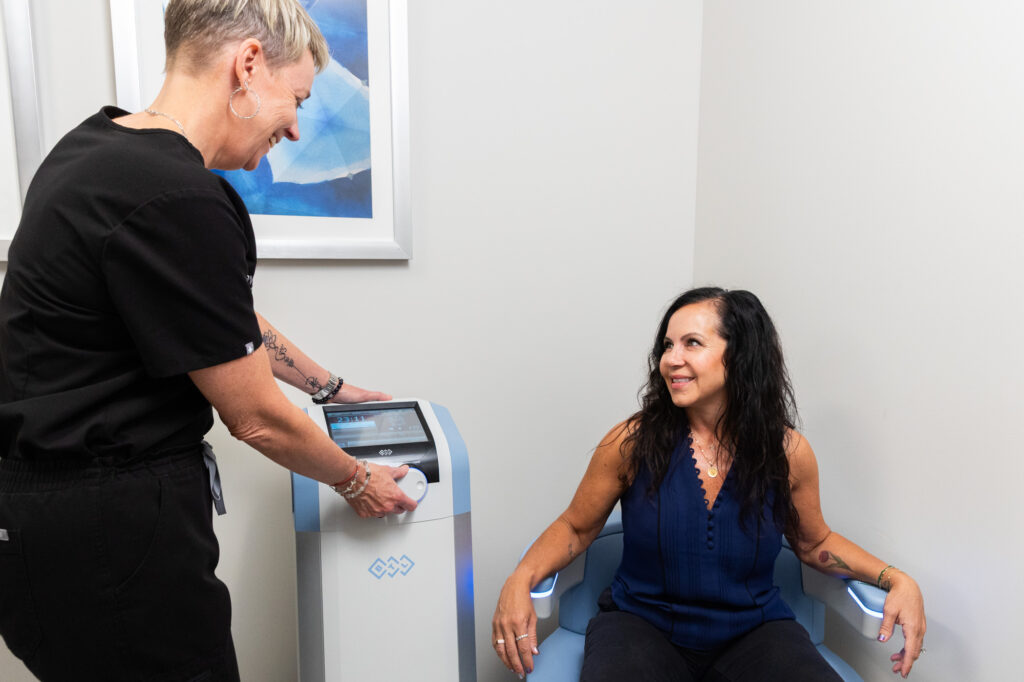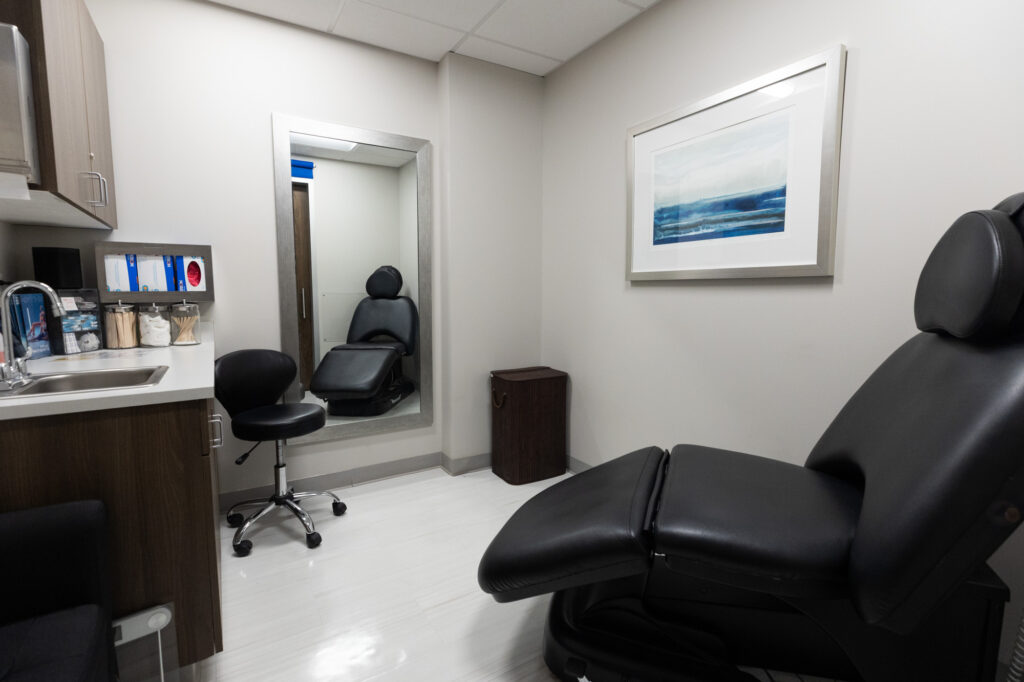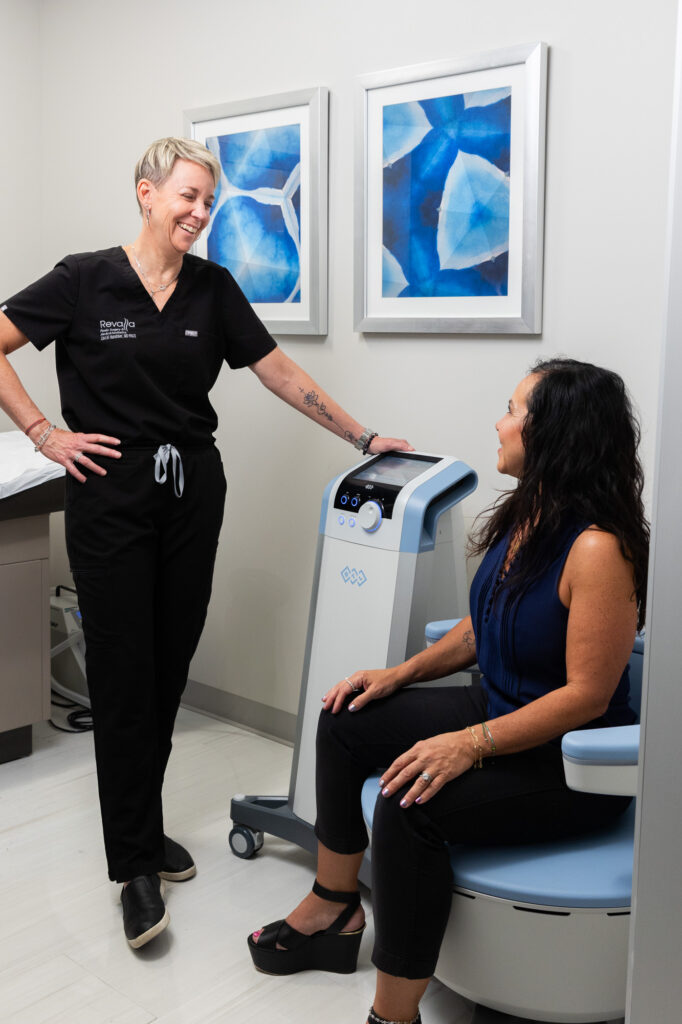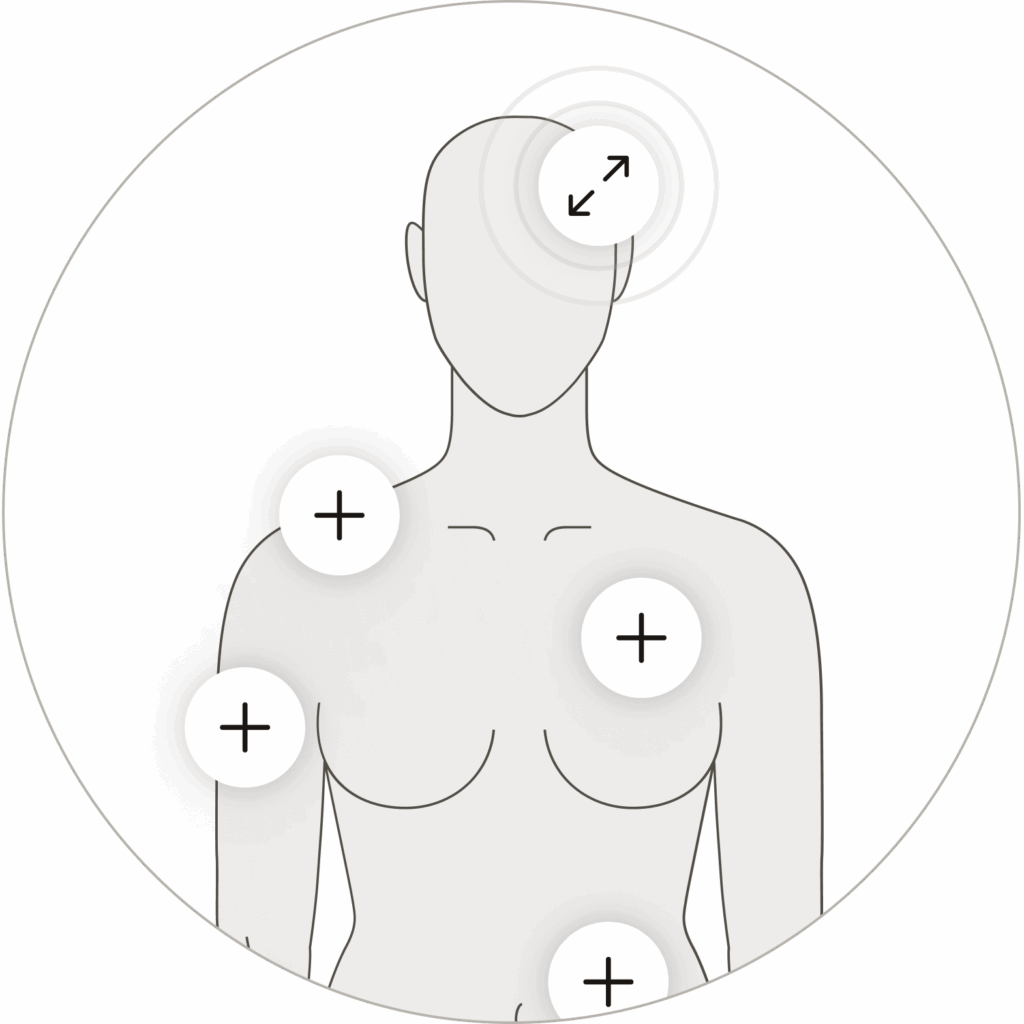Wear loose, comfortable clothing to your session. Avoid wearing accessories made from metal.

Emsella in Littleton, CO
Regain Your Confidence

-
Consultation Required?
Yes
-
Treatment Type
Nonsurgical
-
Treatment Length
30 Minutes
-
Number of Treatments Needed
6 to 10
-
Downtime
None
-
Duration of Results
3 to 12 months, quarterly treatments for maintenance

Emsella Pelvic Floor Therapy Overview
Consultation
When you’re ready to improve your pelvic floor with Emsella in Littleton, CO, schedule your consultation at Revalla Plastic Surgery.
Our registered nurse will inquire about your goals and medical history, and answer any questions.
Treatment
Our registered nurse will help you get settled on the Emsella chair.
They will begin treatment and adjust the chair settings to suit your comfort level. You will not have to remove clothing during treatment.
Results
Your results will appear over the course of 2 to 6 weeks as you continue with your treatment series.
You may feel sore from the muscle contractions. This is normal and will fade over a few days.
Confidence Begins With Trust
Led by Dr. Hunsicker, our surgical staff genuinely cares for each patient. Their dedication to surgical practices ensures each patient feels seen and heard. Learn more about our elite surgeon at Revalla Plastic Surgery!





Pre-Care Instructions
Inform your provider if you’re menstruating on the day of your appointment.
Post-Care Instructions
Consistent hydration will enhance your results as you continue receiving treatments.
Do not engage in heavy exercise or strenuous activities for 24 to 48 hours following your session.
Be prepared to schedule additional sessions as we provide a series of treatments for Emsella in Littleton, CO.
With Emsella in Littleton, CO, we can treat the following conditions:
- Urinary incontinence
- Pelvic floor weakness
- Nighttime urination
- Sexual dysfunction in men and women
- erectile dysfunction
Emsella can improve a number of pelvic floor conditions, but it may not be right for everyone. We may recommend an alternative treatment if you’re experiencing the following:
- Pregnancy
- Metal implants (IUDs, pacemakers, hip replacements, etc.)
- Bleeding disorders
- Recent surgery in the area
- Pulmonary insufficiency
- Drug pumps
- Hemorrhagic conditions
- Anticoagulation therapy
There are many factors that can cause urinary incontinence. These factors include:
- Age: As we age, the muscles in our bodies weaken, including our pelvic floor muscles. Weakened muscles can decrease bladder control.
- Pregnancy and childbirth: Hormonal changes and increased weight from the fetus can strain your pelvic muscles. Vaginal delivery can weaken the muscles and impact bladder control.
- Obesity: Extra weight can increase pressure on the bladder and the surrounding muscles. Weak muscles can cause leaks and reduce bladder control.
- Family history: Having a close family member with urinary incontinence can increase your chances of developing the condition.

Create Your Custom Plan

Your care is in your hands! Select your concerns and tailor a plan just for you!









